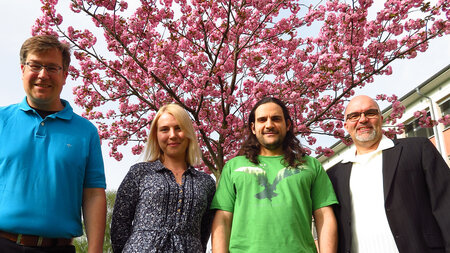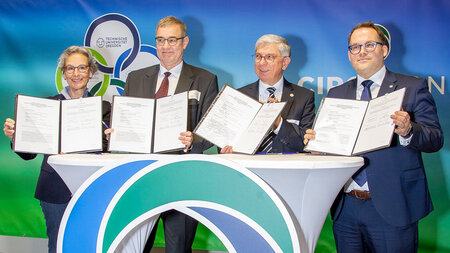International Conferences
Organisation by Chair of Cultural and Social Change, Institute for European Studies and History, Faculty of Humanities, Technical University Chemnitz.
Instituto Camoes
Contact: Joana Serrado- joana.serrado@phil.tu-chemnitz.de
Phone: 01590-6642066
This workshop brings together scholars from different fields of study (philosophy, anthropology, literature, social history and cultural studies), working on some off-the beaten track topics from the Lusophone World and/or the Early Modern period. Over these two days, we will discuss several dimensions of the Self - a Lusophone self, namely, discourses of freedom, expressions of autonomy, production of knowledge, and the imaginary of bodies. This will be done:
1) In constructions of freedom through the abolitionist discourses in Europe and the Atlantic Triangle.
2) Through gender, ethniticity and religious vectors in the configurations of autonomy in private, public and spiritual life in Lusophone West Africa, India, Europe and Spanish America.
3) By reflecting upon the theories and methodologies that cross and criss-cross knowledge within the Portuguese-speaking world between 1500 and 1800.
The workshop is a kick-off meeting for an international research project on the intellectual legacy of religious women and their practices of knowledge in the Lusophone world.
The II Jornadas de Estudios Culturales Ibéricos are a continuation of the I Jornadas sobre Estudios Culturales Ibéricos (siglos XX-XXI) en Alemania, which were initiated by Prof. Dr. Ulrich Winter and took place at Philipps-Universität Marburg from 26 to 28 June 2014.
The II Jornadas will take place at Technische Universität Chemnitz from 16 to 18 November 2017. With the main theme New Approaches and Research Practices in Iberian Studies, the conference will provide a platform of discussion for all those working in the field in order to assess its horizons and challenges.
The Call for Papers (.pdf) is now open. Deadline for submission: 28 February 2017
Anlässlich des 40. Todestages von Pablo Neruda organisiert die Professur Kultureller und Sozialer Wandel zusammen mit dem Chemnitzer Kulturverein Amistad am 20. und 21. Juni 2013 die Pablo Neruda-Tage auf dem Campus der Technischen Universität Chemnitz.
The South Eastern European Days are dedicated to bringing students and guests of the Chemnitz UT closer to the Balkan region. The focus lays on the topics "European Integration" and "Oppurtunities for Academic Exchange".
1960 unterzeichneten die BRD und Spanien eine Vereinbarung zur Anwerbung von GastarbeiterInnen. Für Deutschland war es das zweite Abkommen mit einem südeuropäischen Land, nachdem 1955 bereits mit Italien die erste bilaterale Anwerbungsvereinbarung geschlossen wurde. Anlässlich des 50-jährigen Jubiläums der Unterzeichnung des Anwerbeabkommens zwischen Deutschland und Spanien möchte die Veranstaltung „1960-2010: 50 Jahre spanische Einwanderung in der Bundesrepublik“ eine Bilanz des halben Jahrhunderts spanischer Einwanderung in Deutschland ziehen und die Erinnerung an diese Schlüsselepoche der bilateralen Beziehungen zwischen Deutschland und Spanien pflegen.
The European Union celebrated its 50th birthday. The Treaty of Rome may have made the project of a united Europe a reality in 1957, however, discussions of utopias regarding a community of European States have been conducted in several languages over the centuries.
The International Congress Ideas of Europe / Ideas for Europe – placed under the patronage of the President of the European Commission, Mr José Manuel Barroso – seeks to promote the debate on different ideas of a European Community. Knowing the different concepts of Europe that have been developed in the heterogeneous cultures of Europe enables to reflect on what Europe should be like in future.
The European integrative process has not only intensified the relations between the economical and political pre-eminent powers and the new Eastern-European members, but furthermore it triggers the exchange between the ‘old’ and ‘new’ peripheries of the continent. All EU-members are presented to a much greater degree now in the media and the official discourses of the other members. The increase in mobility of the people adds to a growing density of the inter-peripheral relations in Europe.





